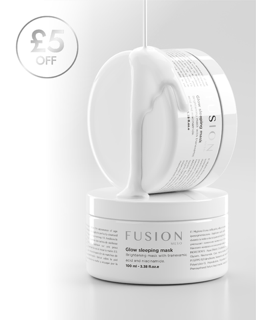The Beauty of Sleep: How Quality Rest Boosts Skin Regeneration
- marielarkin15
- Jul 16, 2024
- 3 min read
We often hear the term "beauty sleep," but how much truth lies behind this age-old saying? It turns out, quite a lot. Sleep is not only essential for overall health and well-being but also plays a crucial role in skin regeneration. Let's delve into why quality sleep is a vital component of your skincare regimen and explore some tips for establishing a healthy sleep routine.
The Science Behind Sleep and Skin Regeneration
Our skin, the body's largest organ, undergoes various regenerative processes while we sleep. During deep sleep, the body goes into repair mode, producing growth hormones that aid in cell and tissue repair. Here’s a closer look at what happens:
Increased Collagen Production: Collagen is a protein that keeps the skin firm and elastic. During sleep, collagen production ramps up, helping to repair damage from UV exposure and reduce the appearance of wrinkles and fine lines.
Cell Regeneration: Skin cells regenerate more quickly at night, with the peak period occurring between 11 PM and 4 AM. This means that a good night’s sleep can significantly boost the skin’s ability to heal and rejuvenate.
Blood Flow Improvement: Sleep enhances blood flow to the skin, ensuring that it receives essential nutrients and oxygen. This helps to maintain a healthy, glowing complexion and promotes the healing of wounds and blemishes.
Reduction of Inflammation: Lack of sleep can lead to increased levels of inflammation, exacerbating skin conditions such as acne, eczema, and psoriasis. Sufficient sleep helps keep inflammation in check, promoting clearer and healthier skin.
Tips for a Healthy Sleep Routine
Achieving quality sleep is easier said than done, especially in our fast-paced world. However, by establishing a healthy sleep routine, you can improve not only your overall health but also your skin’s vitality. Here are some tips to help you get started:
Stick to a Schedule: Go to bed and wake up at the same time every day, even on weekends. Consistency helps regulate your body’s internal clock, making it easier to fall asleep and wake up naturally.
Create a Relaxing Bedtime Ritual: Develop a pre-sleep routine to signal to your body that it’s time to wind down. This could include activities such as reading, taking a warm bath, or practicing gentle yoga or meditation.
Optimize Your Sleep Environment: Ensure your bedroom is conducive to sleep. Keep the room cool, dark, and quiet. Invest in a comfortable mattress and pillows, and consider using blackout curtains or a white noise machine if necessary.
Limit Screen Time: Exposure to blue light from screens can interfere with the production of melatonin, the hormone that regulates sleep. Try to avoid screens for at least an hour before bedtime. Instead, engage in relaxing activities that don’t involve electronic devices.
Watch Your Diet: Avoid large meals, caffeine, and alcohol close to bedtime. These can disrupt your sleep cycle and prevent you from getting the deep, restorative sleep your skin needs.
Stay Active: Regular physical activity can help you fall asleep faster and enjoy deeper sleep. However, try to avoid vigorous exercise close to bedtime, as it may have the opposite effect.
Manage Stress: Chronic stress can negatively impact sleep quality. Incorporate stress-reducing practices into your daily routine, such as mindfulness meditation, deep breathing exercises, or journaling.

Prioritising sleep is one of the most effective ways to support your skin’s natural regenerative processes. By establishing a healthy sleep routine, you can enhance collagen production, promote cell regeneration, improve blood flow, and reduce inflammation—all of which contribute to healthier, more radiant skin. Remember, true beauty sleep is not just a myth; it’s a vital part of your skincare regimen. So, tuck yourself in early tonight and let your skin reap the benefits.
Sweet dreams and glowing skin await!



Comments